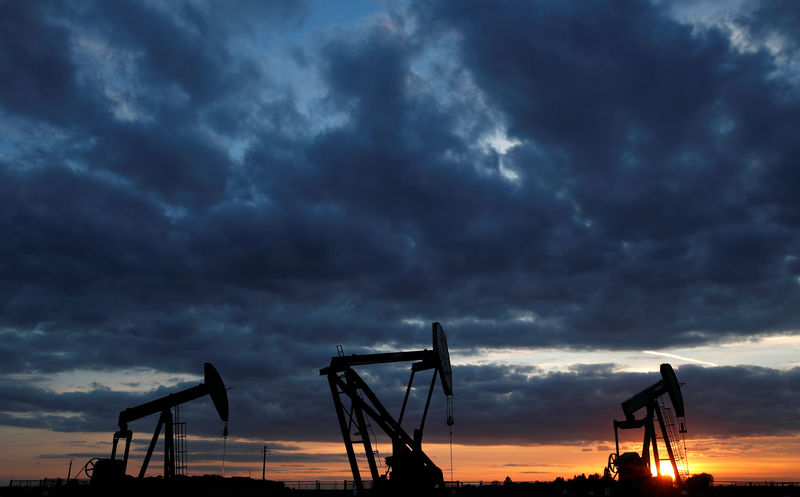By Geoffrey Smith
Investing.com -- Crude oil prices edged higher on Monday as risk appetite returned to asset classes including stocks and industrial commodities, but remained under downward pressure from lingering fears of more lockdowns during the Northern Hemisphere winter, and by the resumption of supplies from war-torn Libya.
By 11:15 AM ET (1515 GMT), U.S. crude futures were up 0.2% at $40.29 a barrel, while the international benchmark Brent was up 0.4% at $42.56 a barrel.
U.S. gasoline RBOB futures were up 0.3% at $1.1931 a gallon.
Prices were supported by the extended rally in stocks and a corresponding weakening of the dollar, which consolidated its recent gains against a backdrop largely devoid of market-moving news. However, the market is monitoring two geopolitical developments that could push it in either direction.
On the one hand, OPEC member has now restored its oil output to around 250,000 barrels a day - an increase of around 160,000 b/d from previous levels, as the result of a tentative peace deal between warring factions in the country's civil war. The Ras Lanuf and Es Sider export terminals, two of the three largest in the country, are still closed however. Likewise, the Sharara field, which can produce up to 300,000 b/d, is yet to restart.
On the other hand, traders were put on fresh alert by an outbreak of fighting in the Armenian enclave of Nagorno-Karabakh in Azerbaijan at the weekend. The Baku-Ceyhan pipeline, which can carry 1.2 million b/d of crude to Mediterranean markets. passes within 30 miles of the so-called 'contact line' between the two sides' forces.
The Nagorno-Karabakh conflict, which first flared during the collapse of the Soviet Union 30 years ago, has been largely frozen in recent years. The two small countries each have powerful backers - Turkey in the case of Azerbaijan and Russia in the case of Armenia, and the two larger powers have been able to stop hostilities before they get out of hands, a geopolitical reality that has often stirred suspicions that the two turn the conflict on and off at will.
The latest flare-up comes as Turkey wrestles with a currency crisis, while Russia's plans to export more gas to Europe are being jeopardized by threats of U.S. sanctions.
BP (NYSE:BP), the operator of the Baku-Tbilisi-Ceyhan pipeline, said that it was 'business as usual' on Monday, according to Bloomberg.
Elsewhere, two prominent U.S. shale drillers - Devon Energy (NYSE:DVN) and WPX Energy (NYSE:WPX) - announced plans to merge, with the hope of making scarce capex dollars go further. The two project output growth of 5% a year after the merger, according to Paul Sankey of Sankey Research: "While this may still be too high, it now genuinely seems to be an outcome of high return investment rather than a goal in itself;" he said.
According to Baker Hughes, the number of active drilling rigs in the U.S. ticked up to 183 from 179 last week. That's still a long way from signifying any meaningful rise in U.S. shale production, however.
